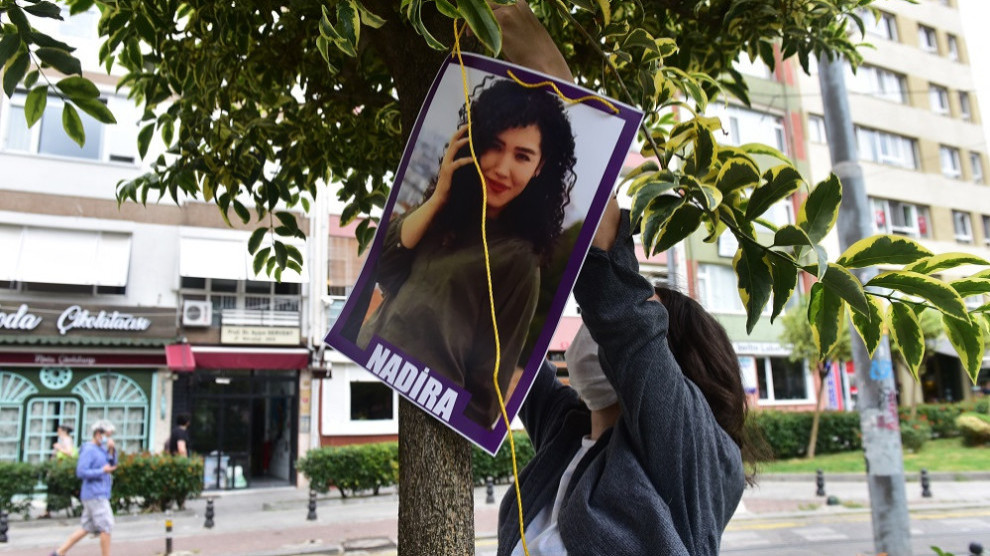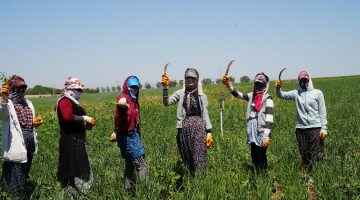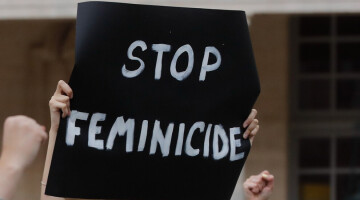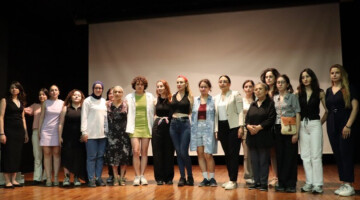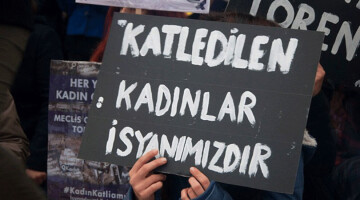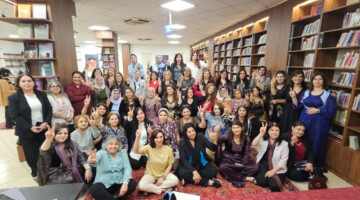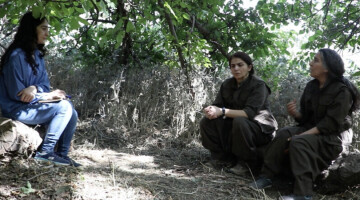In the Istanbul district of Kadiköy, activists of the initiative "Liberation of Women" protested against plans by the Islamist ruling party AKP to denounce the Istanbul Convention of the Council of Europe. Female members of the DP (Revolutionary Party) also took part in the purple human chain in front of the Süreyya Opera House. The women carried banners with the inscription "femicide is political murder" and shouted loudly and militantly towards the massively raised police: "We will not be silent and will not bow down" and "Long live our women's liberation struggle".
Despite shocking figures - last year alone, the platform "We stop femicide" (Kadın Cinayetlerini Durduracağız Platformu, KCDP) registered 474 cases of women being killed by their husbands or partners - the masculinists of the AKP have been debating for some time whether to withdraw from the convention, as it destroys the classical family structures and family cohesion. The 2014 treaty aims to curb violence against women, especially domestic violence, and to strengthen gender equality. Turkey was the first country to sign the convention and had it legally enshrined as a "law to prevent violence against women and protect the family".
Even regulations such as Law No. 6284, which according to the AKP is supposed to act as a "protective cloak for women" but is hardly implemented at all, are feared by the government itself and other fanatical circles because it would push men into a corner. Thus, Islamist newspapers are also fueling the debates about Law 6284, which was drafted in March 2012 in close cooperation with women's rights organisations, and the Istanbul Convention.
Esra Can: Femicide balance sheet resembles a war record
"The dramatic numbers of recorded femicides in Turkey in 2019 are like a war record," activist Esra Can said at the Istanbul action, adding that the number of unreported cases is likely to be even more brutal. In particular, murders of refugee and migrant women hardly appear in the statistics or are presented in the media or police reports as suicide or natural death. This terrible picture is the result of the "misogynistic and male-state policy of the AKP", during whose reign almost ten thousand femicides were killed, according to Can.
"Emine, Ceren, Seer, Rojbîn, Özgecan, Nadira... Women who have a name and would be alive today if the police had helped them when they sought protection from violence. They could have been with us today, here on the streets and in the squares, if security authorities and the judiciary efficiently enforced laws to prevent and combat violence against women and domestic violence. They could be alive if there were dissuasive penalties for perpetrators, rather than rebates for alleged provocation by victims. They could be alive if their murderers had been excluded from the Corona Amnesty. They would be with us today if government jargon did not say women were not equal to men."
Women's liberation struggle is our only security
In other countries, Can added, governments have long taken action in view of the dramatic situation of women. Not so in Turkey, where the aim is to silence women at all levels. "The government seriously believes that we should accept being exploited, disregarded and killed. We will not remain silent when patriarchal violence is inflicted on us. We will continue to fight, because the women's liberation struggle is our only security to survive."
Images of femicide victims on trees in the park
After the speech, the women moved to the nearby park named after the Gezi victim Mehmet Ayvalıtaş with pictures of femicide victims. Several times the police intervened to stop the march - without success. As an act of remembrance, the activists attached the pictures of the killed women to many trees in the park. The faces of Uzbek Nadira Kadirova, who allegedly committed suicide in the apartment of the AKP member of parliament Şirin Ünal, of Kurdish student Gülistan Doku, who "disappeared" in Dersim after an argument with her ex-boyfriend, of transwoman Hande Buse Şeker, who was murdered by a policeman in Izmir, and of Ceren Özdemir, who was stabbed to death in Ordu by a man she had rejected.

